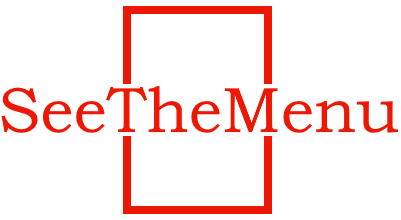Why Privacy Matters: Secure Digital Menus in the Restaurant Industry
Date:16/07/2024

In an era where digital interactions are ubiquitous, privacy and data security have become paramount, especially in the hospitality sector. As restaurants increasingly adopt digital menus, the need to protect customer data intensifies. This blog post delves into the significance of data security and privacy in digital menu services, exploring why these factors are critical not just for compliance, but for maintaining customer trust and safeguarding your business reputation.
The Need for Privacy and Security in Digital Menus:
- Sensitive Information Handling:
- Digital menus often collect customer data such as names, contact details, payment information, and preferences. This information, if compromised, can lead to privacy violations and financial fraud.
- Regulatory Compliance:
- Depending on the location of your restaurant, various regulations like GDPR (General Data Protection Regulation) in the EU, or CCPA (California Consumer Privacy Act) in the US may apply. Compliance with these laws is not just about avoiding fines; it’s about operational integrity and ethical business practices.
- Building Customer Trust:
- Customers are more aware and concerned about their data privacy than ever. A restaurant that prioritizes data security helps build trust with its customers, ensuring them that their personal information is handled responsibly and securely.
Challenges of Securing Digital Menus:
- Cybersecurity Threats:
- As digital menus become connected to the internet, they become potential targets for cybersecurity threats such as data breaches, malware attacks, and other malicious activities.
- Integration Issues:
- Digital menus often need to integrate with other systems such as payment gateways and customer relationship management (CRM) tools, each adding layers of complexity to data security.
- Lack of Awareness:
- Small to medium-sized restaurants may not have the necessary expertise to implement strong cybersecurity measures, making them vulnerable to data security risks.
Strategies for Enhancing Privacy and Security:
- Use Secure Platforms:
- Opt for digital menu platforms that comply with international security standards and are known for their robust security features. Regular updates and maintenance of these platforms are also crucial to protect against new vulnerabilities.
- Implement Strong Data Policies:
- Develop and enforce strict data handling policies that dictate how customer data is collected, used, stored, and shared. Make sure these policies are transparent and easily accessible to your customers.
- Educate Staff and Customers:
- Regular training for staff on the importance of data security, along with tips on recognizing and mitigating risks, is essential. Educating customers about how their data is protected can also reinforce trust.
- Regular Security Audits:
- Conducting regular security audits can help identify and rectify vulnerabilities before they can be exploited. This includes checking for security updates and patches for the software used by the digital menu system.
Conclusion: The integrity of a digital menu system extends beyond its functionality and aesthetic appeal to include the privacy and security of customer data. In the competitive landscape of the restaurant industry, those who prioritize and implement stringent data protection measures will not only comply with legal requirements but also earn the loyalty and trust of their customers.
